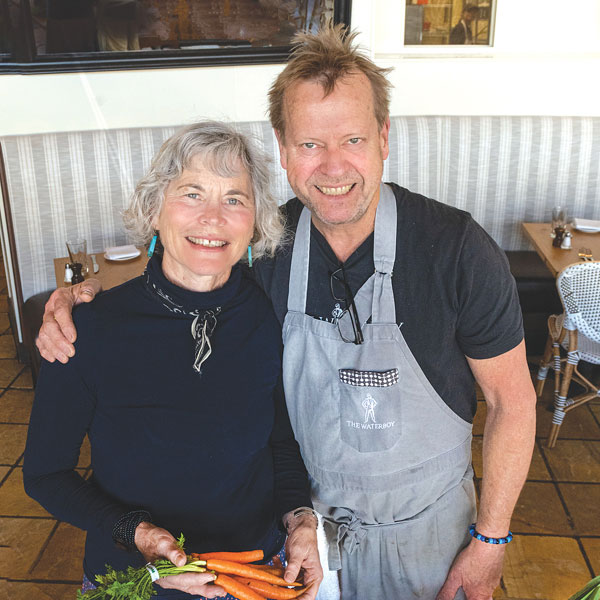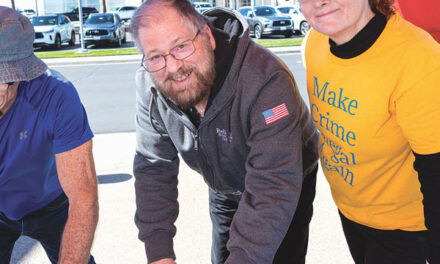Sacramento is still recovering from COVID-19. As of September, the pandemic killed 3,399 people in Sacramento County, with 1,830 COVID deaths in the city. Those numbers are tragic, and they especially impact older folks with pre-existing conditions. But just about every problem faced by our communities, schools and businesses resulted from broad lockdown policies authorities ordered despite the societal and economic damage closures would inflict. It was myopic, short-term, “let’s do something” thinking that will negatively impact a generation.
Many experts advocated for isolating medically vulnerable people, rather than the entire society. Their voices were slandered and censored by lockdown architects, led by Dr. Anthony Fauci, chief medical adviser to the president. He recently stated lockdowns had not gone far enough.

It has been argued there were no studies to support lockdown policies, as detailed in the recent book “A Plague Upon Our House” by Dr. Scott Atlas of Stanford University’s Hoover Institution. Dr. Atlas said reports he prepared to challenge lockdown policies were ignored by the White House pandemic taskforce he worked on during summer 2020. A Johns Hopkins University meta-analysis of studies around the world concluded that lockdown and mask restrictions have had “little to no effect on COVID-19 mortality.”
I was in a unique position to see the economic damage. I’m a small business owner and our publications are supported 100 percent by hundreds of other small businesses. Many local business operators are longtime friends of mine. The financial and personal tolls have been devastating, and it’s not yet over. My business had challenges, especially the first few months. At Inside, we were unsure we could collect advertising dollars owed us. But as Congress made federal funds available, many small businesses realized they could survive. I cannot state how valuable this was to so many.
Personally, the first few months were terrible. Mandatory masking caused my husband, who has dementia and is hearing impaired, to lose his hearing aids. Lockdowns closed exams at hearing aid centers. Our conversations often consisted of me shouting and Jim not understanding. At times we both just hugged and sobbed. It was four months until medical offices reopened. But his cognitive decline could not be reversed.
I recently asked several small business owners about their worst lockdown experiences. Josh Nelson, CEO of Selland Family Restaurants, told me it was heartbreaking to lay off 370 team members without direct communication. “We went from 375 to five on our staff and the workload was crushing,” he says. “And of course, the two weeks to ‘stop the spread’ became more than a year of openings and frustrating closures.”
Sheree Johnston, former owner of East Sac Hardware, had other problems. Folks were clamoring at her door while she and her adult children filled every shift. Vulnerable employees were sent home. Eventually, she closed her business and shut out all the negative feelings. When I call her, she says, “I had some PTSD forcing myself to relive it. It was a terrible time. Customers were plenty, but too many were nasty and demanding. Mask and political arguments were awful. And we noticed that customers wearing masks often showed very little social grace when they discovered we didn’t have what they wanted in stock.”
While her plan was to retire and pass the business to her children, they lost desire to work in retail. “Yes, it had that much impact on our family,” she says. Lisa Schmidt, volunteer leader of the nonprofit Friends of East Sacramento, who manages the Clunie Community Center, McKinley Rose Garden and Shepard Garden and Arts Center, faced many challenges.
“We had always been able to cover our employee salaries and daily operating expenses—rent, utilities, janitorial service, etc.—with the income from renting the venues,” she says. “So, it was a very sad week when I had to mail refund deposit checks to renters. “But in July 2020, it finally sunk in that it was going to be a long time before families and friends would be allowed to gather and rent our venue spaces. We had to make the decision as to what to do with our employees, who we had continued to pay since day one of lockdown using our rainy-day funds. Grants and (federal) funds gratefully helped us bridge that gap.”
She says, “I also was affected by the loss of all the beautiful life-enhancing events that use our facilities. My work is all on a volunteer basis and I realized how much these events uplifted me personally. I can only imagine the loss to these families who could not celebrate weddings, memorials and special occasions.” Schmidt retires next month, when her nonprofit returns the McKinley Park facilities to city management.
Restaurants suffered disproportionately. Food is perishable, costs rose quickly and supplies were difficult to find. We were used to simply ordering what we needed and that was in season. But then we were lucky to get some items at all,” says Rick Mahan, who owns The Waterboy and OneSpeed Pizza. “It was frustrating, exhausting and stressful for our entire
team. It still is!”
Downtown restaurants and retail shops had the worst time. Lockdowns sent tens of thousands of state workers home. Riots after George Floyd’s murder in May 2020 caused millions of dollars in property damage—some not yet repaired—and left many suburban residents afraid to go Downtown. Sadly, many stalwart businesses never reopened, including de Vere’s Irish Pub, Lucca Restaurant and the original Simon’s Café.
“If (federal money) had not come through in its final form, we would have had to close the doors in summer of 2020,” says Mark Miller, who owns Rio City Café in Old Sacramento with his wife Stephanie. “We had run through our capital to stay afloat. We also tried to hold on to staff that had become part of our family. Even before the lockdowns we knew great staff was key to our success.”
Miller recalls unemployment benefits were unknown at the time and state online systems failed many applicants. Add the burden of knowing more than 200,000 small businesses nationally had closed. I was overwhelmed emotionally, realizing more than 200 newspapers and publications were gone, several locally.
While closures and mask and vaccine mandates seem a thing of the past, new concerns have surfaced. Street crime is rampant and threatens staff and customers. Polls show more than two-thirds of business owners are pessimistic, given rising costs due to inflation, supply shortages, delivery delays, staff shortages and more government regulations, including a new California law that looks to raise the minimum wage to $22 an hour for food workers.
But more than anything, small business owners are exhausted after 30 months of disruption. Many have depleted their savings and retirement accounts. Locally owned businesses add unique experiences and vitality to our neighborhoods. We started a campaign in April 2020 that called to support 100 percent local businesses. The message is as important today as it was in 2020— maybe even more.
Cecily Hastings can be reached at publisher@insidepublications.com. Follow us on Facebook and Instagram:@insidesacramento.









